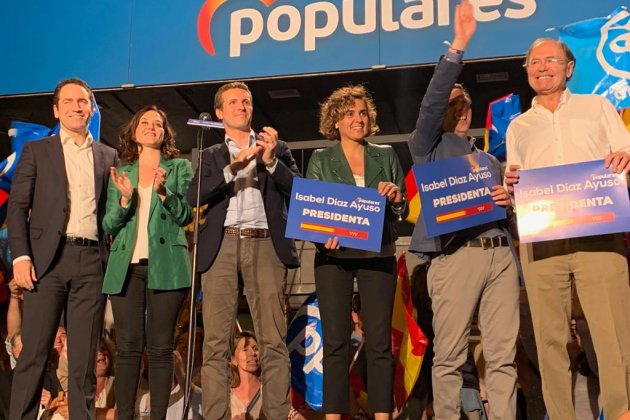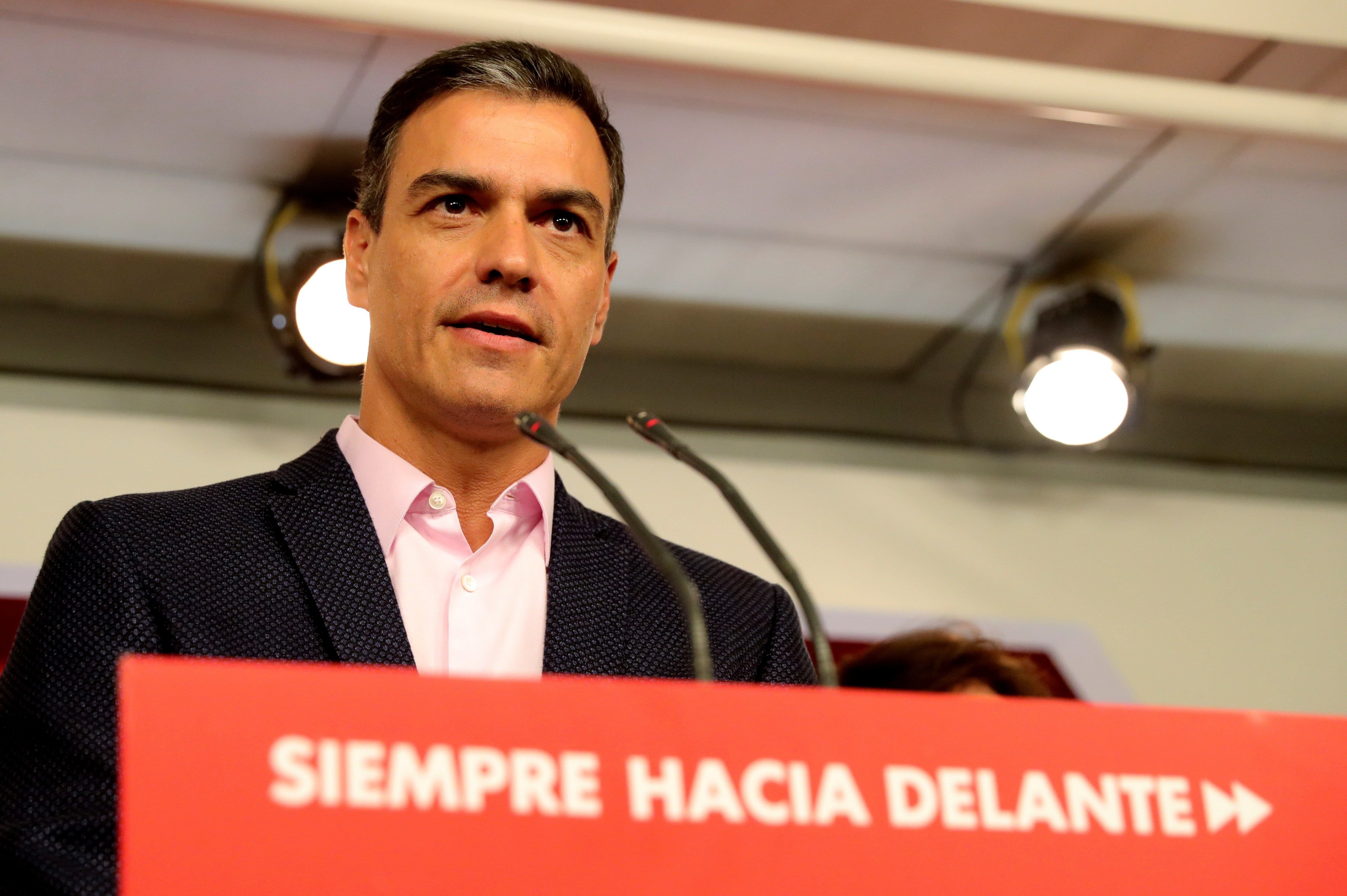The night grew long in Spain. Very long. In a month the Spanish state has undergone its most frenetic cycle of elections in recent decades. But in the end, the real celebration was not at the Spanish Socialist (PSOE) headquarters as it had been a month ago on general election night, but at the base of Pablo Casado's Partido Popular (PP). Pedro Sánchez won a victory at street-level in the European elections and has gained a lot of ground on the map of municipalities and autonomous communities. But the conquest of power has been bittersweet. Something didn't quite work in this second leg of the electoral match-up.
That thing is that, thanks to the so-called trifachito - the right-wing trio of PP, Ciudadanos and the extremists Vox - Pablo Casado not only has the numbers to hold on to the regional government in Madrid, but also to snatch the city's municipal council away from the left under former judge Manuela Carmena. Casado's head was on the block but he has ended up saving himself thanks to the outcome in the Spanish capital. That's why acting prime minister Sánchez has come out with a call for the cordon sanitaire to be applied to the extreme right and not to the PSOE. A request that will be in vain, because the three parties of the right now seem to be committed to a pact along the lines of the one they formed in Andalusia last December.

One person who surely did not sleep easily is the other Pablo: Pablo Iglesias of Unidas Podemos (UP). He was indisputably the loser. In the face of the gains made by the PSOE, his party's losses at autonomous and municipal level were considerable. Four years ago he achieved four "mayoralties for change" among the five most populous cities in the Spanish state. The only one that remains is Valencia where left-wing Compromís triumphed, but not a single councillor from UP itself was elected. In Madrid, by the skin of their teeth, the right are able to pool together and kick out Manuela Carmena. The same goes for Zaragoza. In Barcelona, Ernest Maragall has defeated Ada Colau.
Cs leader Albert Rivera had one last great opportunity to overtake the PP, and once again it didn't come off. The results for Ciudadanos were not bad, but the most the party can aspire to is to shore up the power of a party with whom it wanted to battle for the hegemony of the right.
The regional pattern in Madrid - with the single most-voted party being the Socialists, yet facing a formidable right-wing block - was replicated in many of the other battles for Spain's autonomous communities. The PSOE finished first in ten of the twelve communities where there were elections (all except for Navarra and Cantabria), and even achieved absolute majorities in Castile-La Mancha and Extremadura. But in three of these regions the Socialist victory was not sufficient to avoid the trifachito having an overall majority. This is the case in Madrid, Castile and León (where the PP and Cs have enough strength, without Vox) and Murcia.
Borrell conquers all
In the European elections, the PSOE has swept all before it, with outgoing foreign minister Josep Borrell as head of the list, winning 20 of the 54 seats in play and 32% of the votes. The Socialists are the most-voted party in all parts of the Spanish state with only three exceptions: Catalonia (Lliure per Europa), the Basque Country (PNB) and the autonomous city of Melilla (PP). The voter turnout rose to 64.3%, an increase of almost twenty points, due to the "Super Sunday" effect of up to three elections being held on the same day.
Thus, the PSOE have stolen the first place in Europe which the PP won five years ago. The PP are second, with 12 MEPs and 20.1% of votes. Then come Ciudadanos with seven seats (12.2%), Podemos with six (10%), Vox with three seats (6.2%), Ahora Repúblicas with three seats (5.7%), Lliure per Europa with two seats (4.65%) and the Basque PNB with a single representative (2.7%). The Spanish extreme right has not had quite the same success as its European neighbours.
The story of the night was a cautious optimism at PSOE headquarters which little by little turned sour. The cava went unopened. A clear victory would have fortified Pedro Sánchez, who still has to form a government and negotiate, albeit with a now-weakened Pablo Iglesias. It remains to be seen what approach the Socialist leader ends up opting for: will he govern alone or form the first Spanish coalition government in 40 years of democracy?

